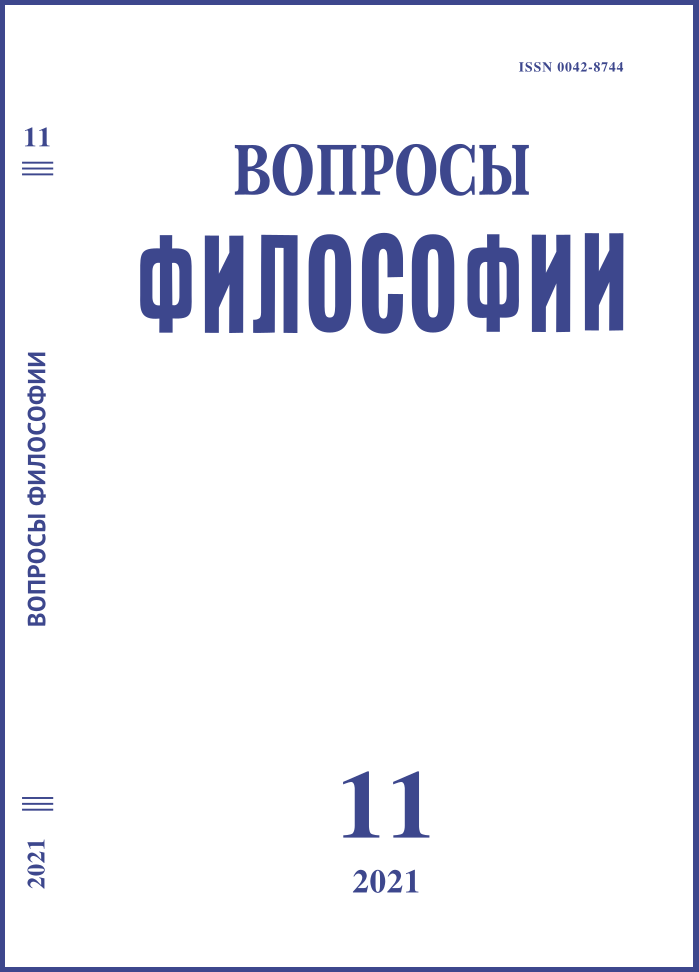The Transformative Role of Crisis in the Context of Contemporary Anthropological Problems
DOI:
https://doi.org/10.21146/0042-8744-2021-11-47-50Keywords:
crisis, interdisciplinarity, transdisciplinarity, complex thinking, situational analysis, case studies.Abstract
The focus of consideration of human transformation sets up optics to track multiple configurations in the formation of its modern forms at the intersection between realities from heterogeneous areas – the logic of the polysemy of the human identity crisis. Identity configurators mediate, for example, between an inter-element macrophysical order greater than the resulting individual and an intra-element microphysical order smaller than that individual (G. Simondon) Or the relationship between the transcendent and the immanent, forming the experience of transdisciplinarity (Ya. Svirsky). This mediation between the ultimate (contradictory, conflicting, contrasting) realities (events, situations) is the beginning of the formation (individuation) of a particular individual. Such a vision raises questions. Does the transformation of a person always take place against the background of crisis phenomena similar to the modern crisis of technological civilization, which are manifested in the relationship of a person between his external and internal nature? And what, then, do we mean by conceptualizing the term crisis? The article attempts to show the crisis as a converter of the course of evolution of the biosocial nature of man. The conceptualization of the term crisis is formed through the grasping of a variety of ambivalent semantic interpretations, which are guessed in the situational analysis of the case studie, between the judgments about the essence and existence of modern man in his ontological presuppositions.

